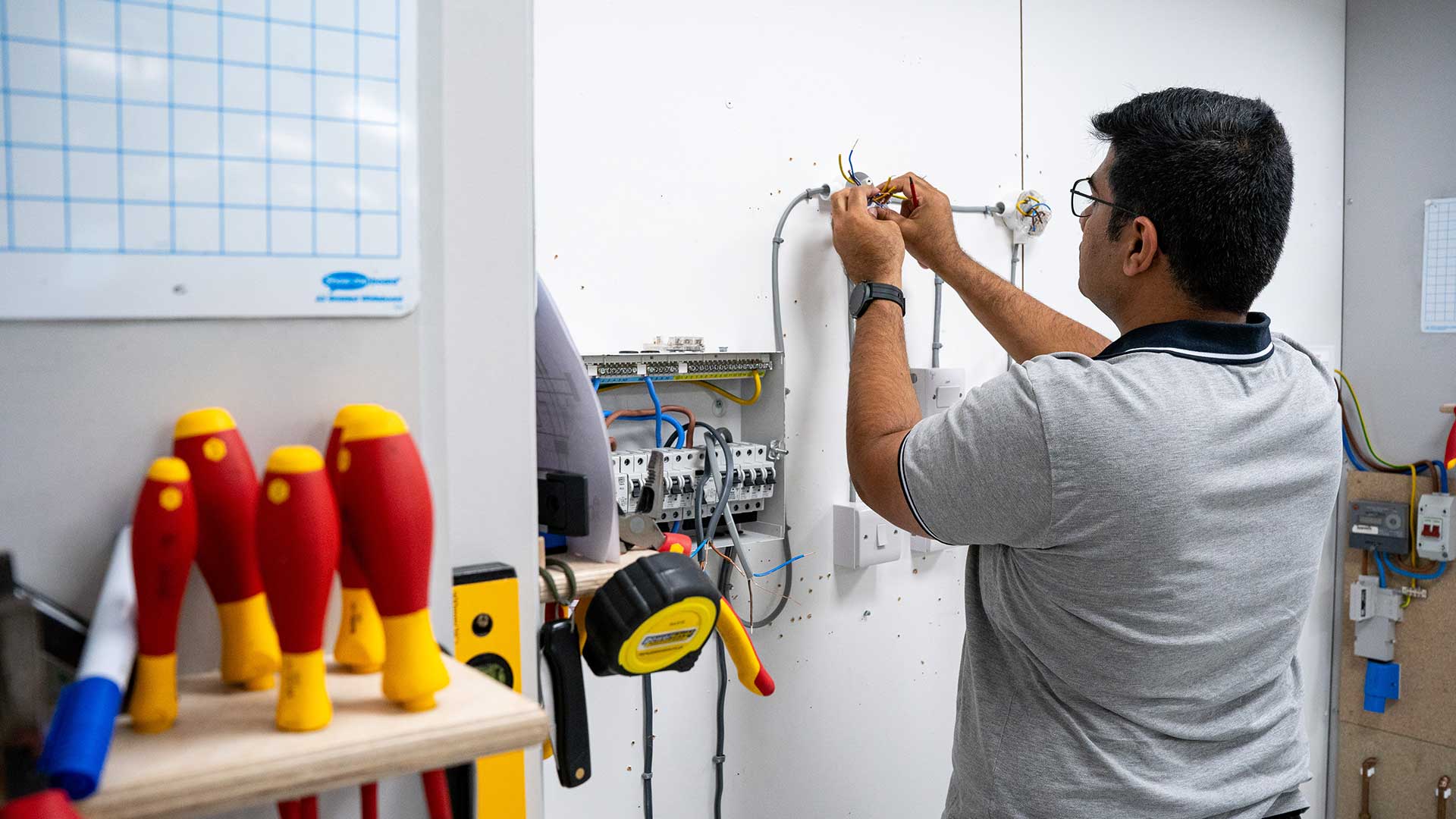As an electrician, accurately quoting electrical jobs is a crucial skill that can make or break your business. A well-prepared quote not only ensures that you’re adequately compensated for your work but also builds trust with your clients. However, estimating electrical projects can be challenging due to various factors like labour, materials, and unforeseen complications. To help you navigate this process effectively, here are some top tips for electrician quoting from Tradeskills4u, the leading electrician training school in the UK.
Thoroughly Assess the Scope of Work
Before providing a quote, it’s essential to conduct a comprehensive assessment of the project. Meet with the client onsite to understand their requirements, preferences, and any specific challenges they anticipate. Take detailed measurements, inspect existing electrical systems, and identify potential obstacles that may impact the job. The more thorough your assessment, the more accurate your quote will be.
Factor in Labour Costs
Labour is a significant component of any electrical job, so it’s crucial to calculate it accurately. Consider the number of hours required to complete the project, including installation, wiring, testing, and clean-up. Account for the skill level of your team members and any specialised expertise needed for the job. Additionally, factor in overhead costs such as insurance, taxes, and administrative expenses when determining your labour rates.
Estimate Material Costs Precisely
Accurately estimating material costs is essential for staying within budget and avoiding unexpected expenses. Create a detailed list of all the materials needed for the project, including wires, switches, outlets, fixtures, and any other components. Research current prices from reliable suppliers and account for any potential fluctuations in cost. Don’t forget to add a buffer for waste, damaged materials, or changes in specifications.
Consider Equipment and Tool Expenses
In addition to materials and labour, don’t overlook the cost of equipment and tools required for the job. Whether it’s specialised machinery, power tools, or safety gear, factor in the rental or purchase costs when preparing your quote. If the project requires renting equipment, be sure to include delivery and pickup fees as well.
Account for Travel and Transportation
If the job site is located some distance away from your base of operations, factor in travel and transportation expenses when quoting the project. This includes fuel costs, vehicle maintenance, tolls, and parking fees. Be transparent with your client about these expenses to avoid misunderstandings later on.
Anticipate Unforeseen Challenges
Electrical projects often come with unforeseen challenges that can impact timelines and budgets. Account for potential complications such as hidden wiring issues, structural obstacles, or changes in building codes. Building a contingency fund into your quote will help cover unexpected expenses and ensure that you can adapt to any curveballs thrown your way.
Stay Up to Date with Industry Standards
The electrical industry is constantly evolving, with new technologies, techniques, and regulations emerging regularly. Stay informed about the latest industry standards, safety protocols, and code requirements to ensure that your quotes are compliant and reflect best practices. Investing in ongoing training and education for you and your team will help you deliver high-quality workmanship that meets or exceeds client expectations.
Use Technology to Streamline the Quoting Process
Harness the power of technology to streamline your quoting process and improve accuracy. Utilise estimating software or apps specifically designed for electrical contractors to create professional-looking quotes quickly. These tools often include features such as material databases, customisable templates, and automatic calculations, saving you time and reducing errors.
Consider Time of Day
The time of day when electrical work is scheduled can impact costs. Some projects may require work during off-peak hours to minimise disruption to clients, especially in commercial settings. However, working outside regular hours may incur additional expenses due to overtime pay or premium rates for night shifts. When quoting jobs, factor in any time-of-day considerations and communicate potential cost variations to clients upfront.
Account for Permitting and Inspections
Many electrical projects necessitate permits and inspections to ensure compliance with building codes and safety regulations. These processes incur fees and may require additional time for paperwork and scheduling inspections. When preparing quotes, research the permitting requirements for the specific project location and include associated costs and timelines. Transparency about these regulatory obligations demonstrates professionalism and helps clients understand the full scope of the project.
Offer Options for Upgrades and Add-Ons
Provide clients with options for upgrades or additional features that enhance the functionality, efficiency, or aesthetics of their electrical systems. Whether it’s installing energy-efficient lighting, integrating smart home technology, or upgrading to higher-quality materials, presenting these choices demonstrates your expertise and adds value to your services. Clearly outline the costs and benefits of each option in your quote, empowering clients to make informed decisions based on their preferences and budget.
Follow Up with Detailed Proposals
After discussing the project requirements with the client, follow up with a detailed proposal that outlines the scope of work, itemised costs, project timeline, and terms of payment. A well-crafted proposal instils confidence in your professionalism and ensures clarity and transparency regarding the project expectations and financial commitments. Be prepared to address any questions or concerns the client may have and remain flexible to accommodate any adjustments or revisions to the proposal.
Communicate Clearly with Clients
Effective communication is key to successful electrical quoting. Clearly outline the scope of work, project timelines, and payment terms in your quote to avoid misunderstandings later on. Be upfront about any limitations, exclusions, or potential additional costs so that clients know exactly what to expect. Encourage open dialogue and address any questions or concerns promptly to build trust and credibility.
By thoroughly assessing the scope of work, accurately estimating costs, and staying informed about industry standards, you can provide clients with transparent and reliable electrical quotes that set the foundation for successful projects. Incorporating these top tips into your electrician quoting process will help you navigate the complexities of electrical contracting with confidence and professionalism, helping to grow your business.To learn more about Tradeskills4u and our electrician courses, you can contact us directly at 0800 8564448. Our knowledgeable staff and experienced trainers will be able to provide you with further information and guide you through the course selection process.



























